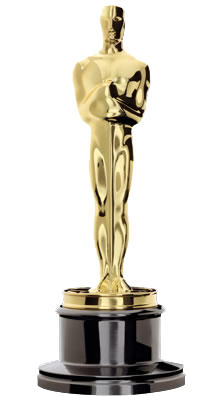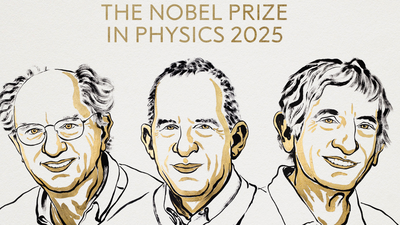Description

Disclaimer: Copyright infringement not intended.
Context
The 96th Academy Awards ceremony, which was presented by the Academy of Motion Picture Arts and Sciences (AMPAS), took place on March 10, 2024, at the Dolby Theatre in Hollywood, Los Angeles.
Details
Recent Winners (2024)
- Best Actor: Cillian Murphy for his role in "Oppenheimer."
- Best Actress: Emma Stone for her performance in "Poor Things."
- Best Supporting Actor: Robert Downey Jr. for "Oppenheimer."
- Best Supporting Actress: Da'Vine Joy Randolph for "The Holdovers."
- Best Director: Christopher Nolan for "Oppenheimer."
- Best Original Screenplay: Justine Triet and Arthur Harari for "Anatomy of a Fall."
- Best Movie: Oppenheimer
For a complete list of winners for the 96th Oscars, click here.
Introduction to the Oscars
- The Academy Awards, commonly known as the Oscars, recognize artistic and technical merit in the film industry.
- Organizer: Presented annually by the Academy of Motion Picture Arts and Sciences (AMPAS) in the United States.
- Purpose: Honors outstanding cinematic achievements as assessed by the Academy's voting membership.
- The Oscar statuette depicts a knight rendered in the Art Deco style, symbolizing the pursuit of excellence in filmmaking.
- The iconic golden statuette, resembling a knight holding a sword, was conceptualized by MGM's art director Cedric Gibbons, giving the award a tangible symbol of honor and prestige.
Ceremony and Awards
- Timing: Typically held in February or March.
- Historical Milestones: The first ceremony was held in 1929, with subsequent ceremonies broadcast on radio (1930) and television (1953).
- Categories: Awards span various categories, including Best Picture, Best Director, Best Actor, Best Actress, and Best Original Screenplay.
- Evolution: The ceremony has evolved over time, with changes in award announcements, media coverage, and audience engagement.
- Trademark: The term "Oscar" is a registered trademark of the AMPAS, commonly used to refer to the awards globally.
Legacy
- Global Recognition: The Oscars are among the most prestigious awards in the entertainment industry, influencing similar awards ceremonies worldwide.
- Impact: The Academy Awards shape industry trends, elevate filmmakers' careers, and contribute to cultural conversations surrounding film.
- Model for Other Awards: The Emmy Awards (television), Tony Awards (theater), and Grammy Awards (music) are modeled after the Oscars, reflecting its enduring influence.

Nominations, Voters, and Rules
Nomination Process
- From 2004 to 2020, Academy Award nominations were typically announced in mid-January, shifting to early February prior to 2004.
- However, in 2021, nominations were announced in March, and in 2022, they reverted to early February.
- The nomination process involves ballots mailed to active members, with each member casting up to five nominees (ten for Best Picture) ranked preferentially.
- Special screening committees, comprised of members from all branches, select nominees in certain categories like International Feature Film, Documentary, and Animated Feature.
Voters
- The Academy of Motion Picture Arts and Sciences (AMPAS) has a voting membership of 9,487 members as of 2022.
- Members are divided into branches representing different disciplines in film production, with actors constituting the largest bloc.
- Voting eligibility is determined by invitation from the Board of Governors, based on significant contributions to the film industry.
- In 2012, a study revealed demographic breakdowns of voting members, indicating a majority of Caucasian, male, and older members, prompting efforts to increase diversity.
Rules and Eligibility
- Films must open in Los Angeles County, California, and play for seven consecutive days to qualify, except for specific categories like Best International Feature Film and Best Documentary Feature.
- Feature-length films must meet certain technical specifications regarding format and length, and multi-part or limited series are ineligible for the Best Documentary Feature award.
- Rules also dictate eligibility for short film categories, including specific release periods and methods of qualification.
- Producers must submit Official Screen Credits online forms before deadlines to ensure eligibility, and films must meet specific screening and review criteria.
Campaigning and Marketing
- Film companies invest significant resources in marketing to awards voters, spending millions to enhance their chances of receiving Oscars.
- The Academy enforces rules to limit overt campaigning by members, with penalties imposed on offenders to maintain the integrity of the awards process.
Mystery Behind the Name "Oscar"
- Despite its widespread recognition, the origin of the name "Oscar" remains shrouded in mystery, with multiple claims and anecdotes circulating over the years.
- Over time, various stories emerged regarding the origin of the name "Oscar," with several prominent figures and anecdotes associated with its creation.
- Notable contenders include actress Bette Davis, librarian Margaret Herrick, and Hollywood columnist Sidney Skolsky, each contributing to the lore surrounding the name.
Bette Davis
- Bette Davis, a renowned actress, purportedly linked the name "Oscar" to her former husband, Harmon Oscar Nelson, suggesting a personal connection to the award.
- However, historical evidence challenges this claim, casting doubt on Davis's role in popularizing the name.
Margaret Herrick
- Margaret Herrick, the first librarian at the Academy, reportedly likened the statuette to her uncle Oscar, inadvertently coining the nickname.
- While Herrick's account predates Davis's claim, the absence of concrete evidence regarding her uncle's existence raises questions about the validity of this narrative.

Sidney Skolsky
- Hollywood columnist Sidney Skolsky offered an alternative explanation, attributing the name "Oscar" to his playful interaction with the term "statuette."
- Skolsky's anecdote, although entertaining, lacks substantiation and is viewed skeptically by historians and industry experts.
Eleanore Lilleberg
- A lesser-known contender, Eleanore Lilleberg, a secretary at the Academy, has also been credited with introducing the name "Oscar."
- Born in Norway, Lilleberg's Scandinavian roots and familial ties to individuals named Oscar provide a plausible explanation for her choice of name.
|
PRACTICE QUESTION
Q. Consider the following statements in reference to Academy Awards:
1. These awards are presented annually by the Academy of Motion Picture Arts and Sciences (AMPAS) in the United States.
2. The first ceremony was held in the year 1919.
3. 96th Academy Award for best actor was won by Robert Downey Jr. for his performance in the movie "Oppenheimer."
How many of the above statements is/are correct?
a. Only 1
b.Only 2
c.All 3
d.None
Answer: a
|















